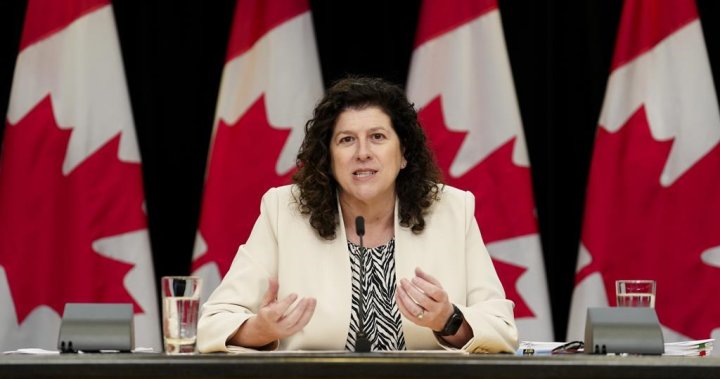Canada’s auditor general is considering a probe into a multi-billion program meant to boost Indigenous business that has been open to abuse for decades.
Following complaints from Indigenous communities and a recent Global News investigation with First Nations University of Canada researchers, Auditor General Karen Hogan’s office confirmed that it is reviewing a request to investigate the Indigenous Business Directory (IBD).
The database is relied on by government departments to find First Nations, Métis and Inuit companies for roughly $1.6 billion in federal work annually under the Procurement Strategy for Indigenous Business (PSIB). Indigenous leaders have long warned Ottawa that non-Indigenous companies are being listed in the IBD and gaining access to billions of dollars worth of government contracts.
A months-long investigation by Global News and First Nations University of Canada delved into the PSIB, created in 1996 aimed at giving Indigenous businesses preferential access to a percentage of federal contracts, found loopholes and workarounds for non-Indigenous companies to access that money.
The analysis found that until 2022, the federal government allowed companies to self-identify as Indigenous and did not always require documentation to support those claims. It also detailed “rent-a-feather” schemes – an open secret in Ottawa’s lucrative procurement industry – where an Indigenous person is hired to front a non-Indigenous company’s bid on federal contracts.

Get daily National news
Get the day’s top news, political, economic, and current affairs headlines, delivered to your inbox once a day.
Natan Obed, the president of Inuit Tapiriit Kanatami, called the workarounds a form of identity theft and the “next stage of colonization.”
The request for an audit comes from three prominent Indigenous groups – the Assembly of First Nations, the Algonquin Anishinabeg Nation Tribal Council, and the Assembly of First Nations Québec and Labrador – who accused Ottawa of “negligent management” of the IBD.
“The IBD, which is meant for giving Indigenous businesses and entrepreneurs targeted contracting opportunities, has been usurped by ineligible, non-Indigenous interlopers who have defrauded Canada of possibly billions of dollars,” the organizations’ letter, shared with Global News, read.
“The Government of Canada, in its claimed purpose of advancing Indigenous economic opportunities, actually takes no care at all to ensure the beneficiaries of billions of dollars of contracts are Indigenous.
“We feel we are being mocked instead of supported by those in charge of the IBD.”
Indigenous Services Canada (ISC), which maintains the Indigenous Business Directory, initially told reporters that it had tightened eligibility requirements in 2022 and required businesses to provide documentation to confirm their Indigeneity.
Global News reported Wednesday, however, that when a representative of the Algonquin Anishinabeg Tribal Council approached ISC to be listed in the directory in April 2024 they were told the council required no documentation.
According to the emails, a federal official told the Algonquin representative they could upload “any” document, including a “picture of a bunny,” to complete the application. The Algonquin representative went ahead and uploaded a bunny picture.
“Incredibly, the Government of Canada accepted said (picture) as proof of AANTC’s Indigenous status,” the letter to Hogan read.
“This would be a funny joke if it were not so sickeningly insulting.”
Global requested comment from ISC about the bunny incident on Monday. As of Thursday afternoon, the department was unable to respond.
In a statement Thursday, the Office of the Auditor General said they are “currently assessing” the Indigenous groups’ request and decide whether to proceed with a probe.
Those audits can take years to complete. But a spokesperson for Hogan’s office said the process is “flexible,” allowing them to “reprioritize planned audits to consider emerging issues, so that our work considers areas of greatest risk for Canada’s peoples as well as our mandate, available resources and parliamentary interest.”
© 2024 Global News, a division of Corus Entertainment Inc.





